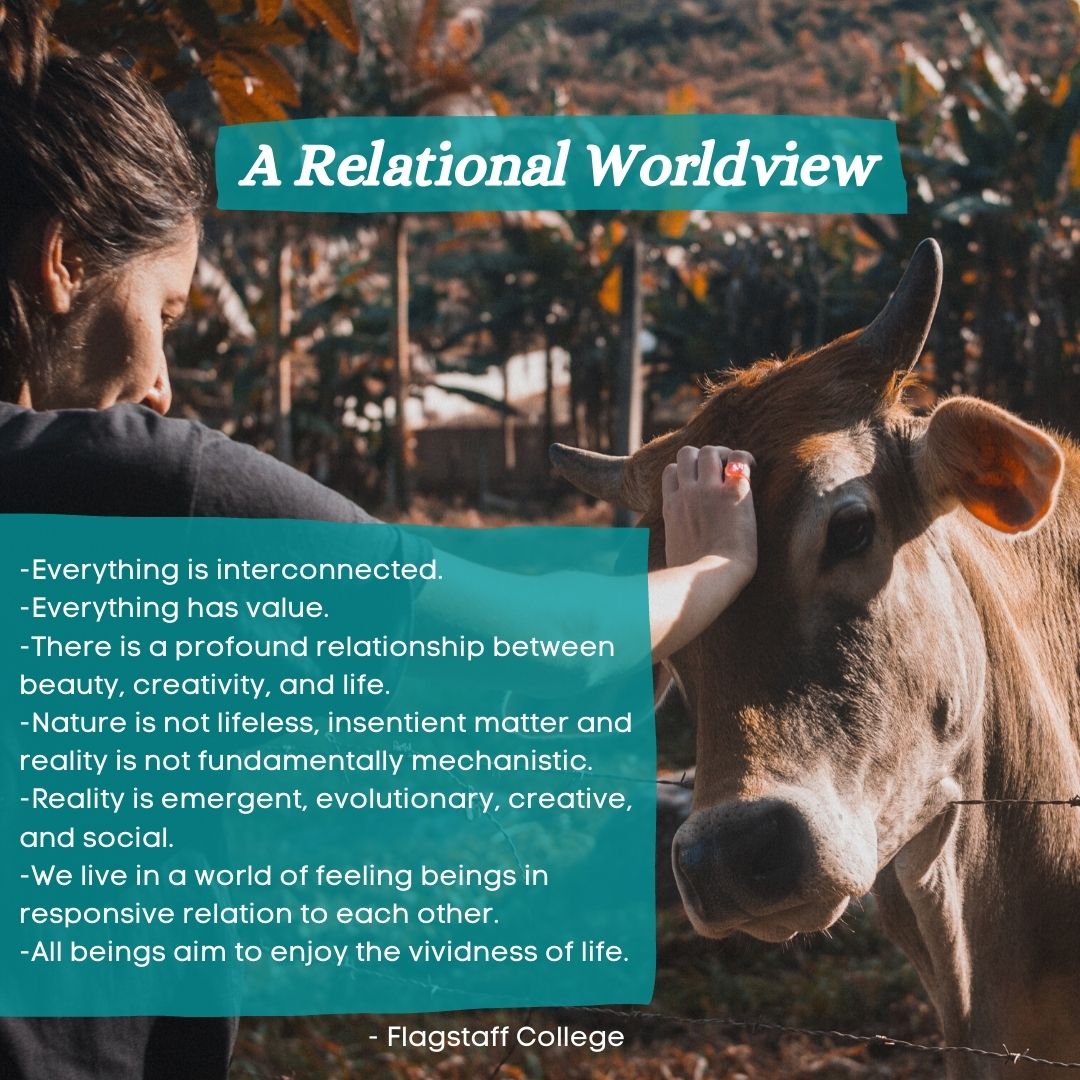Hey, I Count, Too.
Making Space for Animals
in a Relational Worldview.
“Everything is interconnected.” “We live in a relational world.” “Everything is part of everything else.” “We are persons-in-community.” “Reality is ecological through and through.” "It's all Indra's Net." “I am you and you are me and we are all together.”
Do you ever grow a little weary of this talk about interconnectedness and relationality? I do. Especially when it forgets that some forms of interconnectedness are unjust and violent, needful of repair; and that individual living beings have autonomy, too.
Yes, interconnectedness is part of the story. Especially insofar as people over-emphasize individuality and think in terms of mutually external substances. But the other part of the story needed in our time is that each living being is a subject of its own life, with a desire to live with satisfaction relative to the circumstances. If we are to live with respect and care for other people and other animals, our respect must begin, not simply with an appreciation of the interconnected web of life, but also with a recognition that each node in the web has a life of its own, worthy of respect and care. Nodes are not objects, they are subjects.
The philosopher Emmanuel Levinas (1906-1995) said that ethics begins with a recognition of “the face of the other.” This was his metaphor for that touch of transcendence we feel when we know that other people, as genuinely ‘other’ than us, make claims on us. We begin, not with a sense that they are connected to us, but with a recognition of their autonomy as individual and irreducible subjects of their own lives.
Process philosophy and theology add animals to the mix. The fulness of a process-relational worldview is that, even as it emphasizes relationality, it also says, in the words of Flagstaff College, all beings aim to enjoy the vividness of life. All beings include other animals. We should respect them and their aims. We should treat them with respect and care. They are, after all, our closest biological and spiritual kin.
An ecological civilization without respect for animals as well as humans is not worth living in, especially for the animals.
- Jay McDaniel
Do you ever grow a little weary of this talk about interconnectedness and relationality? I do. Especially when it forgets that some forms of interconnectedness are unjust and violent, needful of repair; and that individual living beings have autonomy, too.
Yes, interconnectedness is part of the story. Especially insofar as people over-emphasize individuality and think in terms of mutually external substances. But the other part of the story needed in our time is that each living being is a subject of its own life, with a desire to live with satisfaction relative to the circumstances. If we are to live with respect and care for other people and other animals, our respect must begin, not simply with an appreciation of the interconnected web of life, but also with a recognition that each node in the web has a life of its own, worthy of respect and care. Nodes are not objects, they are subjects.
The philosopher Emmanuel Levinas (1906-1995) said that ethics begins with a recognition of “the face of the other.” This was his metaphor for that touch of transcendence we feel when we know that other people, as genuinely ‘other’ than us, make claims on us. We begin, not with a sense that they are connected to us, but with a recognition of their autonomy as individual and irreducible subjects of their own lives.
Process philosophy and theology add animals to the mix. The fulness of a process-relational worldview is that, even as it emphasizes relationality, it also says, in the words of Flagstaff College, all beings aim to enjoy the vividness of life. All beings include other animals. We should respect them and their aims. We should treat them with respect and care. They are, after all, our closest biological and spiritual kin.
An ecological civilization without respect for animals as well as humans is not worth living in, especially for the animals.
- Jay McDaniel
